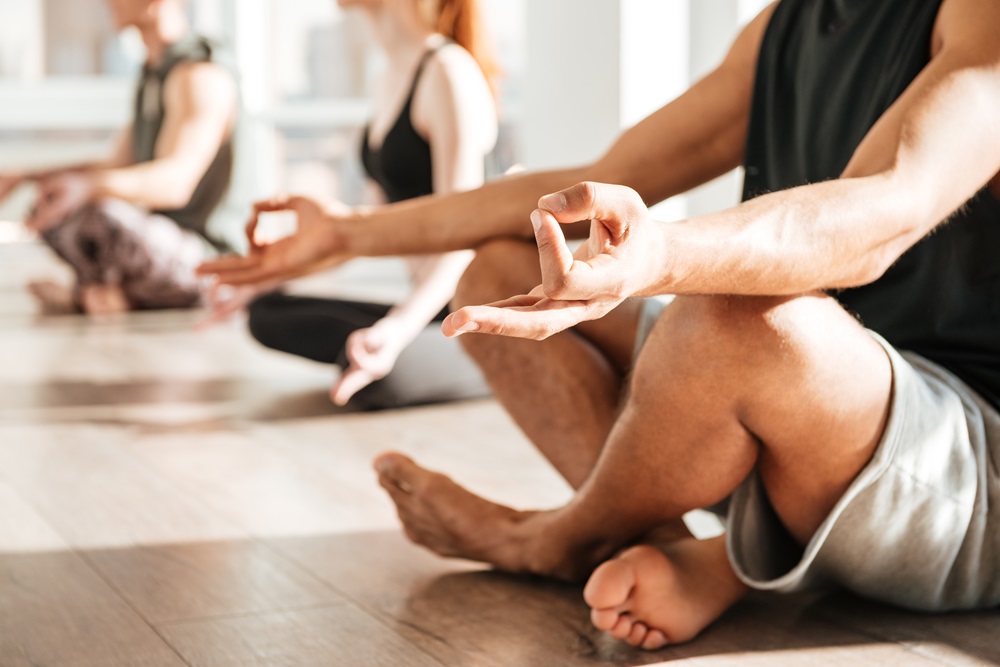Meditation is an ancient practice designed to train the mind for better awareness and calm. It’s not about stopping your thoughts or feelings, but learning to observe and understand them without judgment. So, what exactly is meditation, and why should you add it to your daily routine? Let us go through it step by step.
What Meditation Is
Meditation is a practice where an individual uses a technique—such as mindfulness, focusing on a particular object, thought, or activity—to train attention and awareness, and achieve a mentally clear and emotionally calm state.
At its core, meditation involves sitting quietly, often with eyes closed, and turning attention inward. It’s about being present in the moment and allowing thoughts to come and go without attachment. Over time, it can help you manage stress, improve concentration, and enhance overall well-being. Simple yet powerful.
Various forms of meditation exist, including mindfulness meditation, transcendental meditation, guided meditation, and loving-kindness meditation, each offering unique benefits.
Popular Types of Meditation
| Types | Introduction | Key Tips |
| Mindfulness Meditation | Focuses on being fully present, noticing thoughts and feelings without judging them. Helps with stress and focus. | Focus on your breath and bring attention back whenever the mind wanders. |
| Guided Meditation | A teacher or recording guides you with visuals or breathing exercises. Great for beginners to stay relaxed and focused. | Follow a guide or app for a structured meditation experience. |
| Transcendental Meditation | Involves repeating a mantra silently for 20 minutes. Aims to help you feel calm and relaxed. | Repeat a mantra to reach a deep, calm state. |
| Mantra Meditation | Involves repeating a word or sound to clear your mind and stay focused. | Keep repeating your mantra to maintain focus and clear distractions. |
| Meditation with Movement | Combines gentle movement with meditation, like Tai Chi or mindful walking. Helps you feel relaxed and aware. | Move slowly and stay focused on each movement or step. |
Benefits of Meditation
1. Stress Reduction
One of the most well-known benefits of meditation is its ability to reduce stress. By practicing mindfulness and focusing on the present moment, meditation helps reduce levels of cortisol, a hormone associated with stress. Studies have shown that even a few minutes of meditation can significantly decrease stress and anxiety levels, promoting a sense of calm and relaxation.
2. Improves Focus
Feeling overwhelmed by multitasking and too much information? Struggling to stay focused? Meditation is your go-to skill for improving concentration.
Meditation trains the mind to concentrate and maintain attention on a single point of focus. This practice can increase your ability to stay in the present moment and reduce your tendency to let your mind wander. Over time, regular meditation can lead to improved concentration, productivity, and efficiency in daily tasks.
3. Improved Emotional Health
Meditation has a profound impact on emotional well-being. It fosters a positive outlook on life and helps manage negative emotions. By cultivating a sense of inner peace and self-awareness, meditation allows individuals to better understand and regulate their emotions. This can lead to a reduction in symptoms of depression and anxiety, and an overall improvement in emotional health.
4. Better Sleep Quality
Having trouble falling asleep or poor sleep quality? Meditation might be the solution. Practicing meditation before bedtime can calm the mind and relax the body, making it easier to fall asleep and stay asleep. Techniques like deep breathing and body scan meditation are particularly effective in promoting restful sleep.
5. Increased Self-Awareness
Meditation encourages introspection and self-discovery. By taking the time to sit quietly and reflect, you can gain insights into your thoughts, behaviors, and patterns. This increased self-awareness can lead to personal growth and a deeper understanding of yourself, helping you make more informed decisions and foster better relationships.
6. Enhanced Mindfulness and Presence
In a world filled with distractions, mindfulness is a valuable skill. Meditation trains the mind to remain present and fully engaged in the current moment. This heightened state of awareness allows you to experience life more fully, appreciating the small joys and being more attuned to your surroundings. Mindfulness cultivated through meditation can improve overall life satisfaction and well-being.
How to Start Daily Meditation?
Starting a daily meditation practice is like planting seeds of calm in your mind. With a few simple steps, you can make it a seamless part of your day.
Simple Practices
- Choose a Time: Pick a specific time each day that suits you best, maybe it’s in the morning to start your day or in the evening to wind down.
- Find a Quiet Space: Choose a quiet spot where you won’t be disturbed. It doesn’t have to be fancy, just peaceful.
- Set a Timer: Start with just 5-10 minutes and gradually increase as you get more comfortable.
- Get Comfortable: Sit or lie down in a comfortable position.
- Focus on Your Breath: Pay attention to your breathing. Inhale deeply and exhale slowly.
- Be Patient: It’s normal for your mind to wander. Gently bring your focus back to your breath or mantra.
Tips: If you need help, there are plenty of apps or online videos to guide you through your meditation.
Conclusion
Meditation is more than just a relaxation technique—it’s a powerful tool for transforming your mind, body, and spirit. By reducing stress, enhancing focus, improving emotional health, and offering a host of other benefits, meditation can profoundly impact your life.
Whether you’re new to meditation or a seasoned practitioner, incorporating this practice into your daily life can lead to lasting positive changes. So, why wait? Start your meditation journey today and discover the incredible benefits for yourself.







